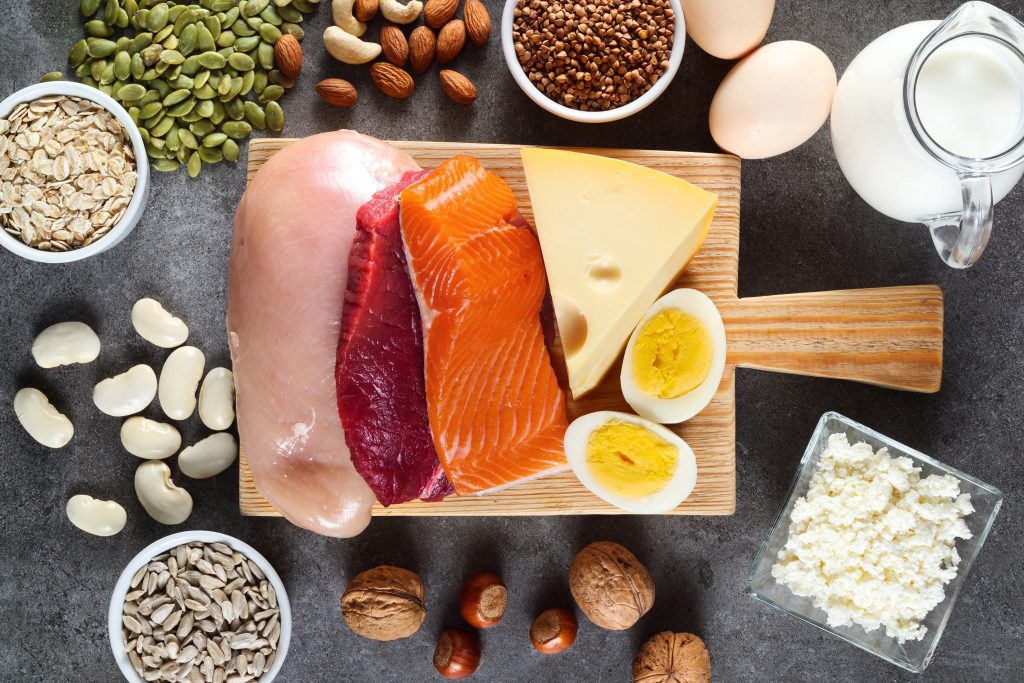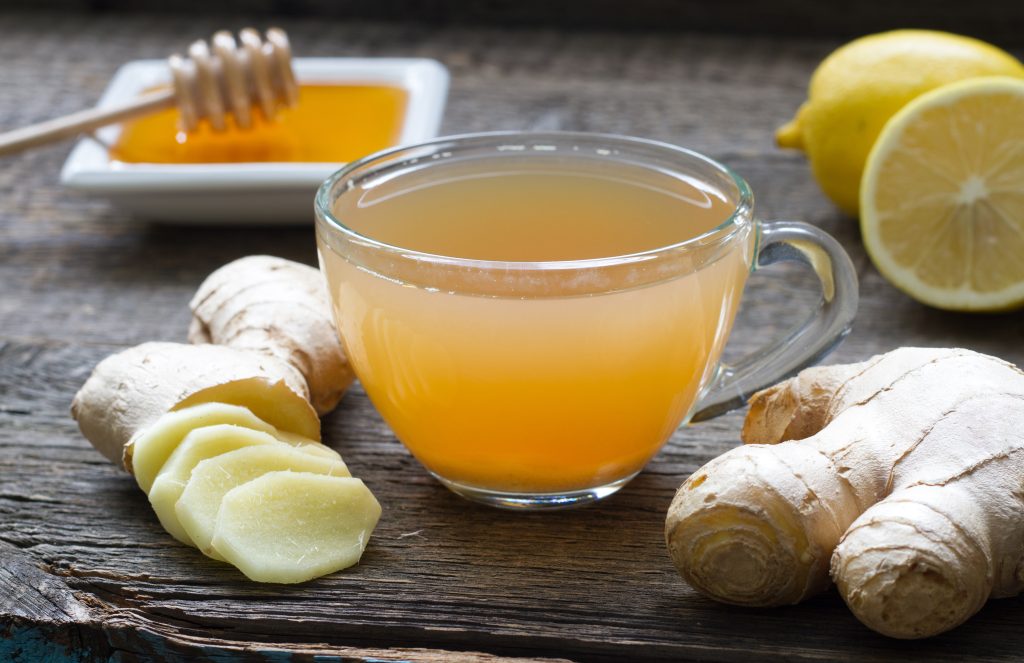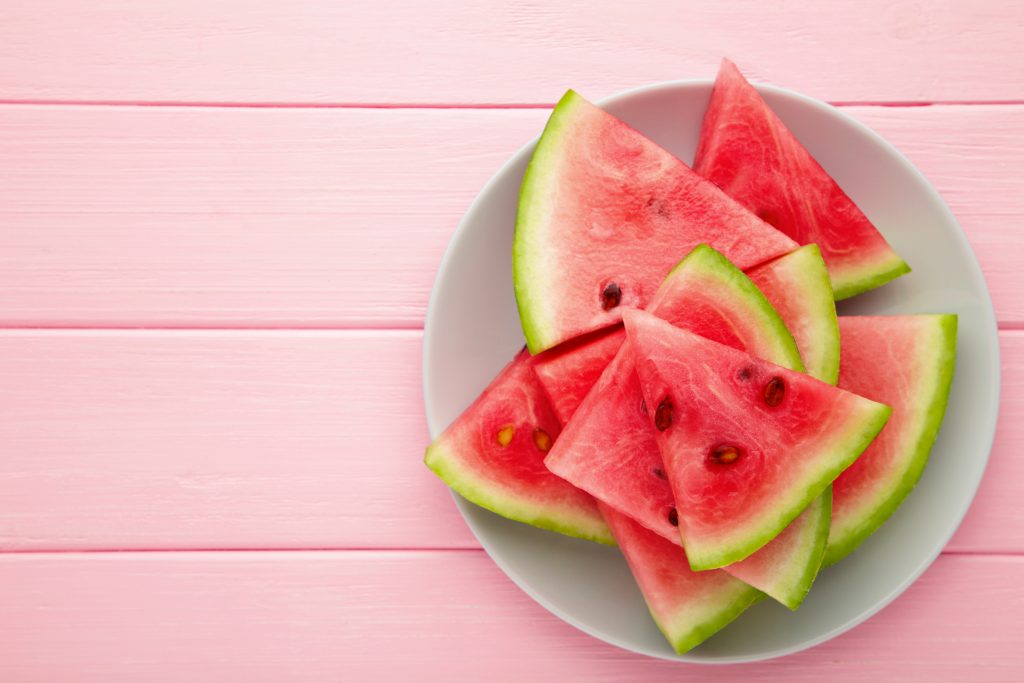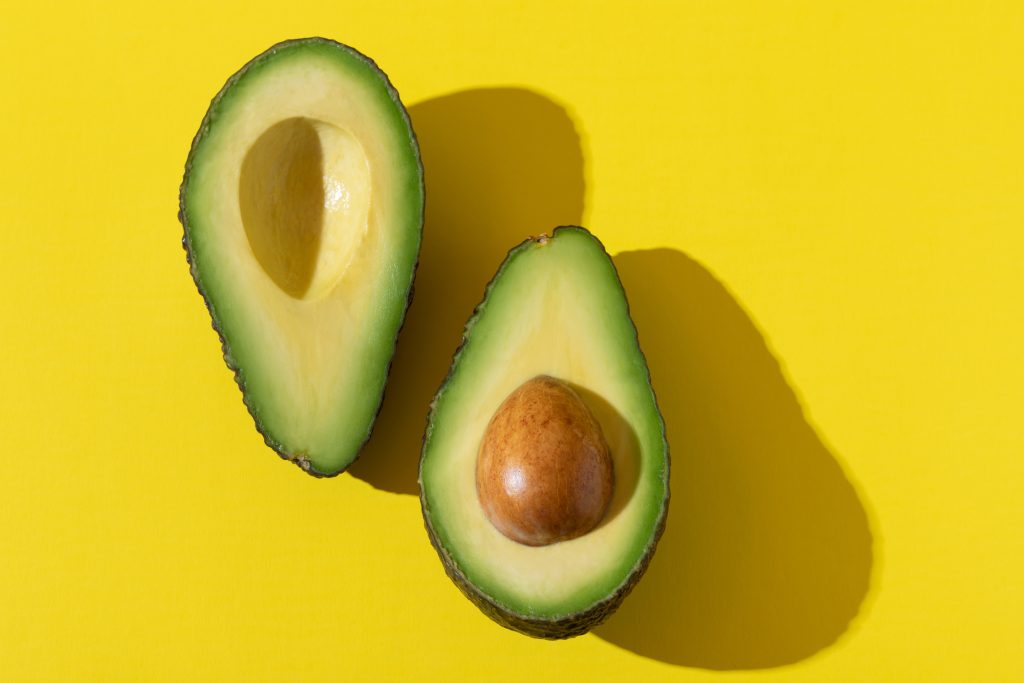
When morning sickness strikes during the early weeks of your pregnancy, you want fast relief from nausea and vomiting. Fortunately, there are many tips to help calm your upset stomach, including foods that fight nausea during pregnancy.
Nausea during pregnancy can happen any time of the day or night. It usually starts between the first 4 to 6 weeks of pregnancy and gets better by week 14. Since nearly 75% of women experience morning sickness at some point during their pregnancy, there are many tried and true methods available to find relief, such as sticking to the best foods for pregnancy nausea.

Feel prepared and know what to expect with the first trimester to-do list from The Mother Baby Center, conveniently located in Minneapolis, St. Paul and Coon Rapids.
What causes morning sickness?
Not all women experience morning sickness the same way. Some feel queasy only occasionally, and others feel sick all day long but might never throw up. There are a few possible causes of morning sickness:
- Hormones. The pregnancy hormone hCG peaks around the time morning sickness is the worst. Also, estrogen and progesterone levels rise during pregnancy, which relax the digestive tract muscles and make digestion less efficient (and might also cause heartburn).
- Sensitivity to odors. Your heightened sense of smell during pregnancy can make some scents sickening.
- Excess saliva. Experts suspect this is the body’s way of protecting your mouth, teeth, and throat from the corrosive effects of stomach acid, which can increase when you’re queasy.
- Stress and fatigue. Emotional stress and being very tired can trigger nausea.
- First-time pregnancy. If your body hasn’t gone through a pregnancy before, the surge of hormones and other changes you’re experiencing might make nausea more likely.
- Hot weather. It can be hard to get comfortable when you’re pregnant, especially if you’re overheated.
- Genetics. If your mom or sister had morning sickness, chances are better you will, too.
Quick morning sickness relief
There’s so much to do when planning for your baby’s arrival. It’s essential to take time for yourself to rest and destress. Rushing and exhaustion tend to aggravate nausea.
Remember to get enough sleep and keep your stress level in check with meditation or prenatal yoga. Keep crackers or cereal on your bedside table so you can have a snack before you fall asleep or right when you wake up. This can give you some morning sickness relief.
Understand pregnancy food cravings and what they mean about you and baby.
Best foods for morning sickness
Nausea and vomiting are always unpleasant and stressful. For some women, it’s crucial to proactively eat certain foods to help treat morning sickness before it becomes more severe. Other expectant moms find relief with particular food and drinks when the queasiness kicks in. It’s also vital to eat and drink after vomiting to replace fluids, electrolytes, and calories.
While we wish there was a morning sickness cure, these foods and drinks can help with nausea during pregnancy:
- Bland, easy-to-digest foods (bananas, rice, applesauce, toast)
- High-protein foods (chicken, peanut butter, beans)
- Cold beverages and snacks (smoothies, almond milk)
- Ginger
- Carbonated beverages
- Herbal teas and broth
- Fruits and vegetables high in water content (watermelon, cucumbers)
- Citrus fruits
- Peppermint
- Foods high in vitamin B6 (salmon, avocados)

Bland, easy-to-digest foods
One of the oldest tricks in the book to help ease morning sickness is still a winner for a reason: bland foods during pregnancy are easy to digest. The B.R.A.T. diet consists of bananas, (white) rice, applesauce, and toast. These foods don’t have an overwhelming flavor, so they’re less likely to upset your stomach. The starch can also absorb stomach acids to help relieve the queasy feeling.
High-protein foods
Experts have found that protein-rich foods can help with nausea during pregnancy. Proteins like chicken, peanut butter, and beans can calm the waves of nausea by increasing a hormone called gastrin, which aids digestion.
Other high-protein foods that help with morning sickness are hard-boiled eggs, hard cheeses, nuts and trail mix, lean beef, edamame, and Greek yogurt.
Eating high-protein snacks will also help you meet your increased need for protein during pregnancy since most women need around 60 grams of protein per day.
Cold beverages and snacks
Did you know hot foods and drinks are more likely to have an aroma that triggers your gag reflex? For a smell to be detected by your olfactory system, it needs heat, so the warmer something is, the more it will smell. Cold foods have less fragrance, so they might be more palatable when you experience nausea during pregnancy.
Also, sometimes it’s easier to consume liquids when feeling queasy, so reach for cold drinks to help with nausea during pregnancy. Some good options are cold almond milk (which can also settle heartburn) and smoothies (load them up with healthy stuff!)
If you’re having trouble keeping liquids down, try sorbet, frozen yogurt, popsicles, chilled fruits, and ice cream.
Discover support groups for new parents and partners through The Mother Baby Center, conveniently located in Minneapolis, St. Paul and Coon Rapids.

Ginger
Ginger has been extensively studied and commonly used in Chinese medicine for hundreds of years to treat nausea and vomiting, so it’s worth giving it a try when you’re feeling queasy. Sometimes just the smell of fresh ginger can calm an upset stomach.
You’ll want to ensure the foods and drinks you’re consuming contain real ginger (check labels; some prepared foods don’t use real ginger.) Try ginger ale, ginger tea, ginger snaps and candies, ginger biscuits, and crystallized ginger. Use fresh ginger when you’re cooking soups and stir fry.
Other ideas for using ginger to help morning sickness include:
- Sprinkling dried ginger on your breakfast oatmeal
- Add it to a smoothie
- Ginger lollipops and candies are increasingly popular
- Grated fresh ginger root can be added to your salad or spicy sauce.
Carbonated beverages
Some pregnant women find mineral water and other carbonated beverages are good morning sickness remedies. The carbonation can help reduce the total acidity of the stomach, making nausea dissipate. Mineral water comes in countless flavors, and you can add your own fruit infusions. Sugary carbonated sodas can also help with pregnancy nausea, but make sure to drink those in moderation.
Remember, carbonation can lead to feeling fullness more quickly than other beverages, so you should sip them slowly and pay attention to any unpleasant side effects like bloating. It can also be helpful to drink fluids a half hour before or after a meal, not with the meal. And make sure to drink small amounts of fluids throughout the day to avoid dehydration.
Herbal teas and broth
Staying hydrated is so important early in your pregnancy. Drinking enough fluids will help settle your stomach and rehydrate your body after throwing up. Plain water is always a great choice, but sometimes a cup of herbal tea is a great drink to help ease nausea during pregnancy.
Not all teas are safe during pregnancy, so stick to herbal teas like chamomile, red raspberry, lemon, spearmint, peppermint, or peach. Adding lemon or ginger to your tea can also help calm nausea.
Sipping soup broth can also be a great way to get hydration and nutrition while calming your stomach. Broth goes down easily, and it contains electrolytes and essential minerals to keep your blood volume up, which can also prevent dehydration and relieve morning sickness.
If hot tea or broth is too aromatic, try cooling them or add ice for a soothing change.

Fruits and vegetables high in water content
We’ve made the point that staying hydrated is one of the best ways to stop morning sickness early in pregnancy and beyond. When drinking fluids makes matters worse, try eating fruits and vegetables with high water content.
Good options to try include:
- Cucumbers
- Tomatoes
- Apples
- Celery
- Peaches
- Cantaloupe
- Strawberries
- Lettuce
- Watermelon
Some pregnant women say watermelon is the best fruit for morning sickness, even when nothing else stays down. In addition to being refreshing and delicious, it can ease heartburn and reduce swelling, and the minerals in it can help prevent muscle cramps. For your growing baby, watermelon is packed with vitamins A, C, B6, potassium, and magnesium, which are important for your baby’s vision, brain, and nervous and immune systems.
Another idea is to add vegetables with high water content to your broth.
Citrus fruits
Try sniffing a lemon when you’re not sure what to eat when you’re nauseous and pregnant. Researchers have found that sniffing lemon scented aromatherapy reduces nausea in pregnant women. Lemons and other citrus fruits in moderation are safe for you and your baby during pregnancy, so add them to your shopping list.
Other uses for lemons or oranges include:
- Squeezing them in your water
- Lick the slices
- Suck sour lemon candy
- Steep whole lemons in water to make a fragrant tea
- Add lemon or orange zest to yogurt or ice cream
Make sure to stash some lemon drop candies in your bag before you leave the house. Smelling lemon essential oil might also provide some nausea relief.
Peppermint
Like ginger, peppermint has been a morning sickness cure for hundreds of years. Peppermint is safe for you and your baby when consumed in moderation.
Try peppermint tea, add mint syrup to sparkling water, or sprinkle fresh chopped mint on Middle Eastern dishes. If you’re feeling up for it, enjoy a non-alcoholic mojito with extra muddled mint! Peppermint hard candies or gum are great for on-the-go nausea relief.
Consuming peppermint essential oil during pregnancy isn’t recommended. It can make reflux worse.
Learn more about calculating your pregnancy timeline and what changes to expect over the coming months.

Foods high in vitamin B6
Vitamin B6 will probably be discussed a lot when you’re newly pregnant and throughout the next nine months. It’s a super important vitamin for the healthy development of your baby’s brain and nervous system.
Bonus Tip: Vitamin B6 can also help stop morning sickness!
Your doctor might recommend you take a vitamin B6 supplement early in your pregnancy when nausea and vomiting are the worst. Other good sources of vitamin B6 include salmon, avocados, sunflower seeds, pistachios, poultry, dried fruits like prunes and raisins, bananas, spinach, and lean pork or beef.
Expert care delivered at every stage of pregnancy at every Mother Baby Center location.

Can certain foods cause pregnancy nausea?
If you’re already feeling kind of green with morning sickness, the last thing you want to do is eat or drink anything that will make nausea worse. For example:
- Skip greasy and processed fast foods, which are hard to digest and won’t do anything to help with morning sickness.
- Avoid fatty and spicy foods, which can trigger nausea and heartburn.
- Certain food smells might bother you more than before you were pregnant, so turn on fans, have someone else cook for you, or skip those foods altogether.
- Carbonated drinks and citrus fruits work as morning sickness remedies for some women, but they do the opposite for others.

Find a pregnancy support group at The Mother Baby Center
Morning sickness is unpleasant but can also be a reassuring reminder that you’re pregnant. Nearly three out of four pregnant women experience nausea and vomiting during their pregnancy, which means there are still women who sail through with no morning sickness. If you have little or no morning sickness, you’re lucky!
But remember, nausea and vomiting can start any time during the second or third month of pregnancy, so it’s good to be thinking about ways to make yourself feel better in case it happens. Knowing the best foods that help with nausea during pregnancy is one way to feel more in control if it happens to you.
If you are nauseous or vomiting during pregnancy, you should eat and drink whatever feels best for you whenever you are able. Talk to your health care provider about other options to manage your morning sickness symptoms, including some prescription medications. A pregnancy support group – like the ones at The Mother Baby Center – is also a great place to get ideas and support.
Remember that morning sickness is temporary, and soon you’ll have a beautiful baby in your arms!
Did you receive care at The Mother Baby Center?
We’d love to hear from you!